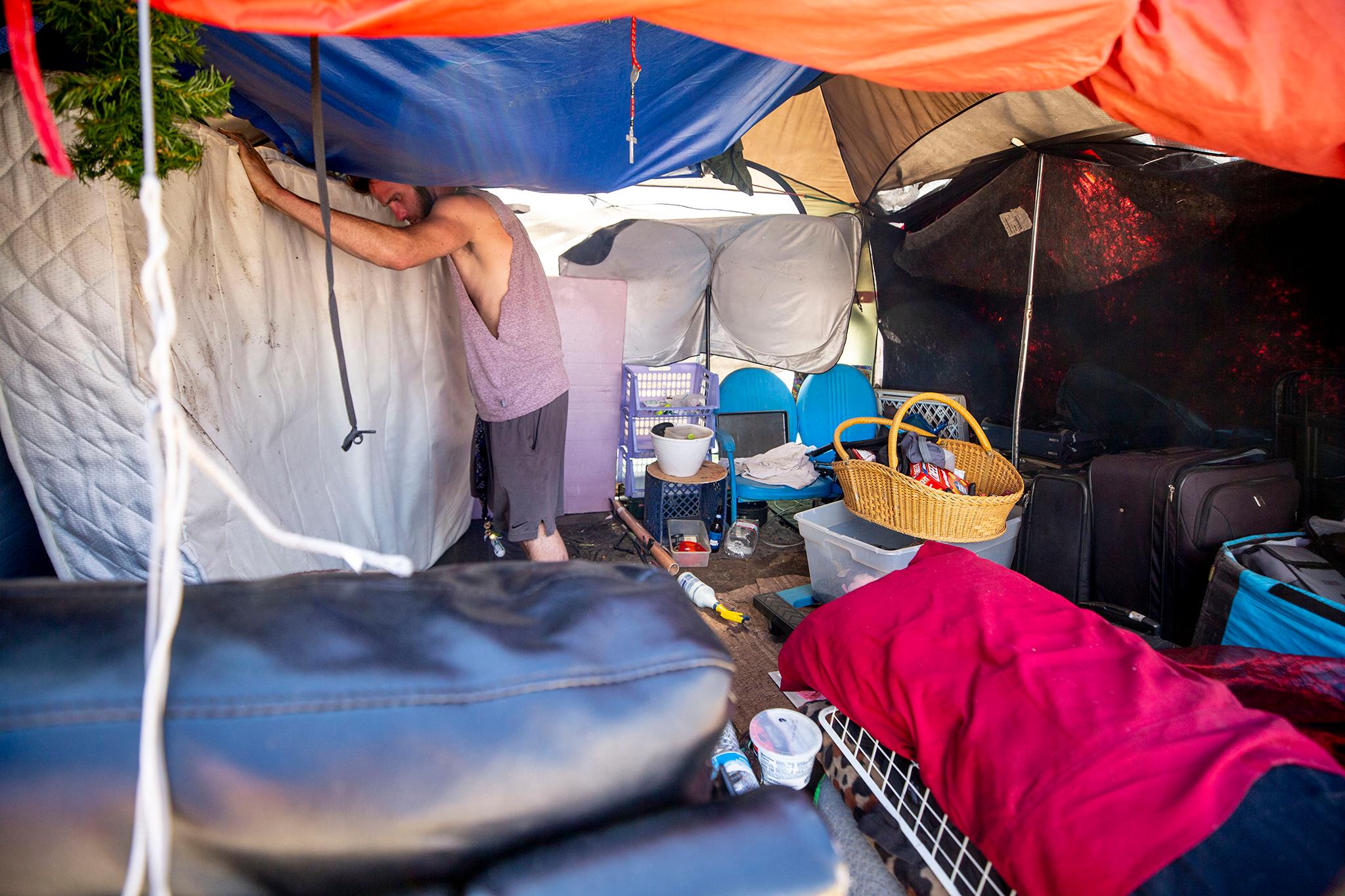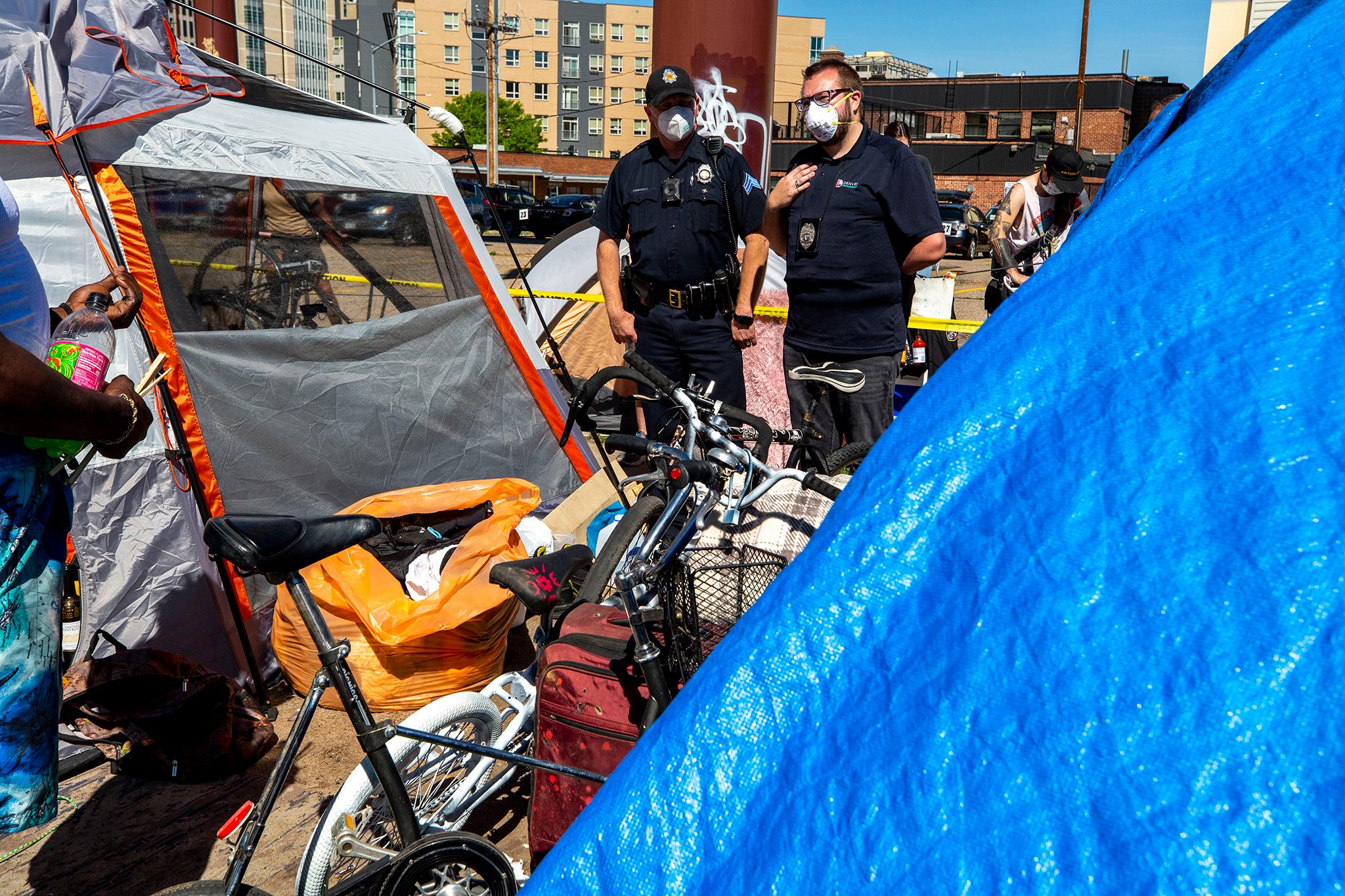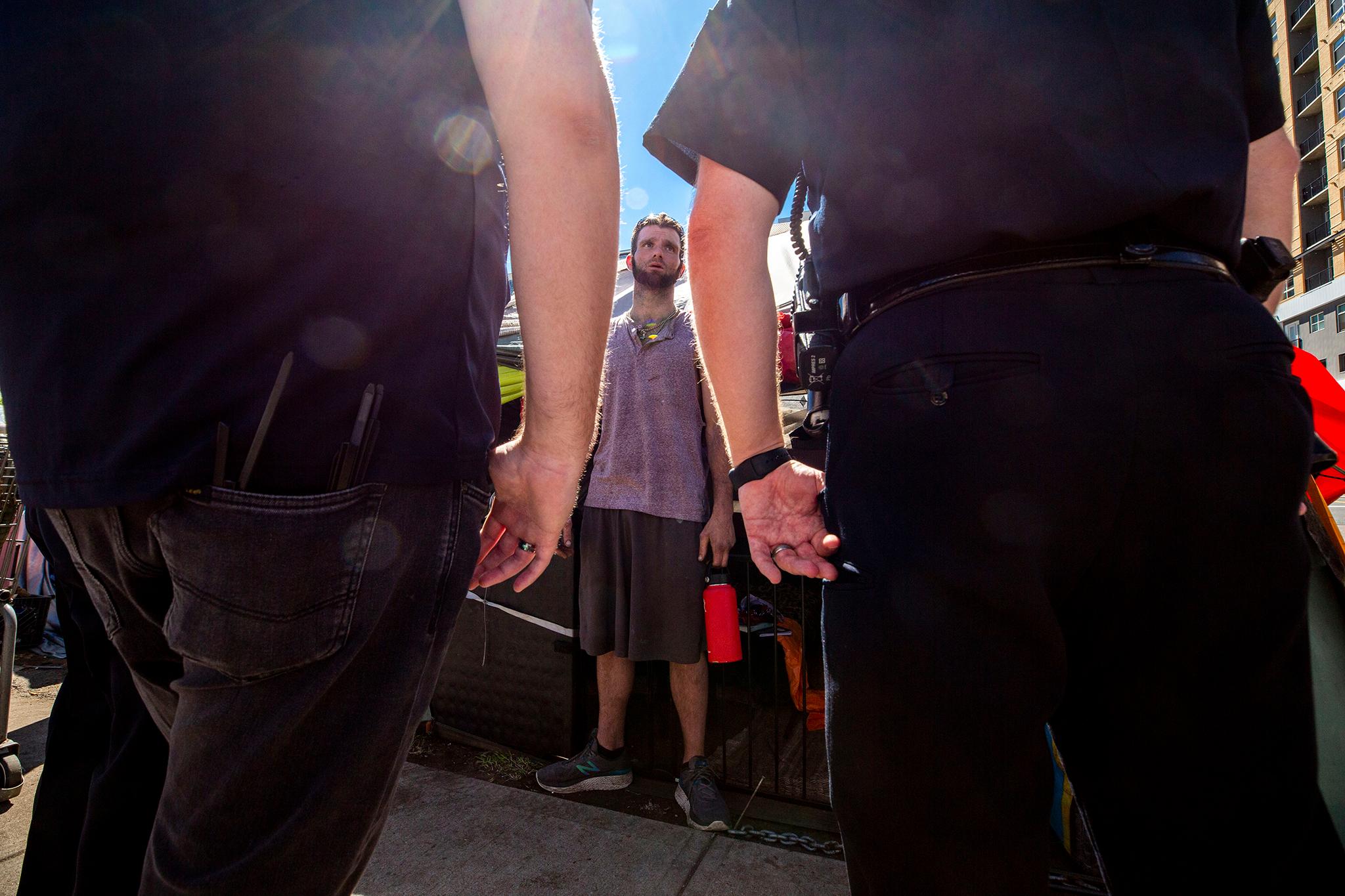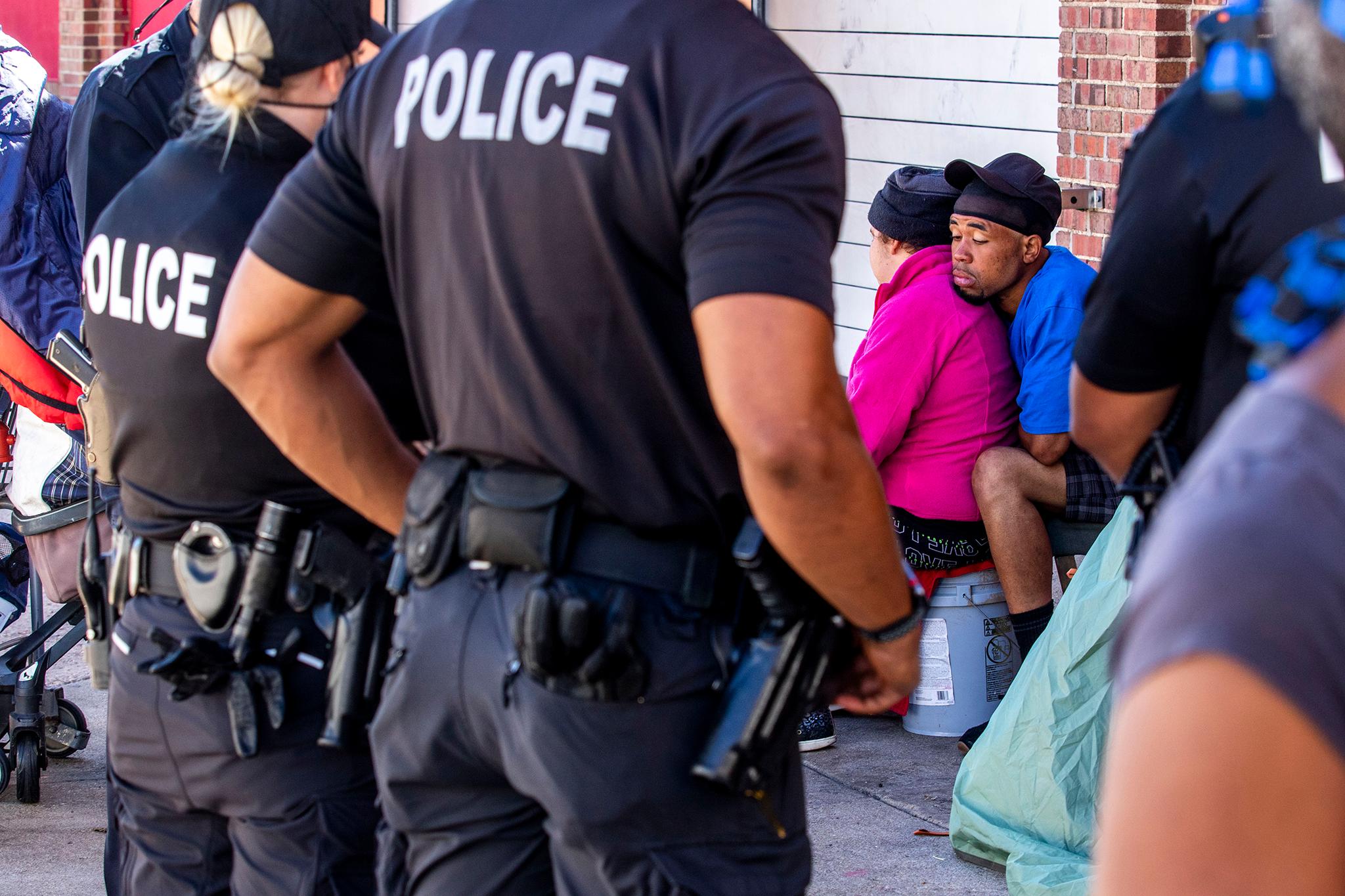Protesters, police, outreach workers, street sweepers and trash trucks were on hand Wednesday as the health department started a cleanup of homeless encampments in Five Points.
Wednesday's operation was along California Street from 20th to 22nd streets and along 21st Street from Stout to Welton streets. The health department said cleaners also would start work soon on the block bounded by Park Avenue West and 22nd, Stout, and Champa streets. The department cited "unsafe conditions associated with recent and ongoing observations by public health investigators, including piles of uncontained trash, used needles, insects, human waste, and other biohazards."
Paul Walls had moved his tent a short distance when Denver's Department of Transportation and Infrastructure cleaned in the same area at the end of April and again in early May. Each time he returned to a patch of dirt and grass between the street and the sidewalk near the corner of California and 21st streets.
"We're tired," Walls said Wednesday.
For a few hours Wednesday, Walls and other people living in about a dozen tents near his refused to move. Yellow tape was strung around their tents while police officers and health department staff conferred across the street. Walls politely wheeled a shopping cart closer to his tent when a member of the cleanup team asked that the sidewalk be cleared to allow cleaning. Later, the group broke up, some moving to hotel rooms offered by a case worker. Walls said he was moving to avoid being ticketed for refusing to obey a public health order. He said he was unsure where he would go.

Denver's Department of Transportation and Infrastructure collected almost five tons of trash from the same area and from surrounding blocks from April 30 to May 1. Transportation and infrastructure crews returned May 7 to remove more trash and wash the sidewalks with a mixture of water and bleach. Those cleanups fell under the provisions of a settlement in a federal suit brought by people experiencing homelessness challenging the way city employees handled their belongings during some street cleanups in 2016. The settlement does not restrict Department of Public Health and Environment actions to protect health and safety.
The blocks targeted by health department are to be closed during the cleanups except for passing through and accessing local residences and businesses, the department said.
"The restrictions are needed to allow clearing, cleaning, assessment, and mitigation of public health and environmental risks to these heavily-used locations; the areas will re-open when abatement and clean-up measures have restored them to a safe and stable state," the health department said in a statement on Tuesday.

The statement referred to guidance from the Centers for Disease Control and Prevention cautioning that clearing encampments can increase the risk of spreading disease during the coronavirus outbreak because the disruption can "cause people to disperse throughout the community and break connections with service providers." Denver officials said they'd weighed the risks and concluded the conditions at the encampments "are egregious and require immediate intervention."
The statement said outreach to people living in the camps "has been ongoing; options, alternatives and resources continue to be offered."
An outreach worker offered Carla Johnston a few nights in a West Colfax hotel room and a ride to the hotel on Wednesday. Johnston accepted and began sorting which of her belongings she would send to a city storage facility and which she would take with her to the hotel. She said she would return by bus in a few days to the nearby St. Francis Center day shelter for a meeting she had scheduled earlier with a case worker to discuss longer term housing. Johnston said she has lived on the streets for years and knew housing would be hard to find on her income of about $300 a month from a federal program that supports people who have few resources and who are older, blind or disabled.
Johnston, like Walls, had moved several times in recent weeks.
"Where ever we move to, it's like once we get comfortable in that area, we have to move again," she said. "It's just hectic."
The need to limit the transmission of the coronavirus led to the closures in Denver of libraries and recreation centers, places where people experiencing homelessness had been able to rest as well as use bathrooms and showers. People without housing or who were precariously housed also have been hard hit by job losses caused by the coronavirus economic slowdown.
As the health department crews worked Wednesday, a dozen protesters bearing a banner indicating they were members of the Party for Socialism and Liberation struck up a chant:
"Where are they supposed to go?"
An unseen woman responded from a window in a nearby high rise: "I don't care where they go."
She added: "They're filthy."

Amid the coronavirus outbreak, 100 homelessness service providers and faith-based and other community groups have suggested sanctioned camping as a way to address both the disruptions cleanups create for people living on the streets, the public health challenge presented by the encampments, and neighborhood tensions. The Interfaith Alliance of Colorado and the Colorado Village Collaborative have proposed to supervise such a camp and ensure it had utilities and security and met Centers for Disease Control and Prevention health guidelines. Mayor Michael Hancock opposes the idea, saying the focus should be bringing people indoors.
San Francisco leaders had resisted sanctioned camping. But in the wake of the pandemic, San Francisco recently set up what was expected to be the first of several, fencing off a plot outside city hall where dozens of tents sit eight feet apart inside squares marked on the asphalt.
Since the coronavirus outbreak began, Denver has opened a shelter at the National Western Complex and another at the nearby Coliseum. It also has secured hotel rooms for people experiencing homelessness who need to recover from illness and for those considered most vulnerable to COVID-19.













